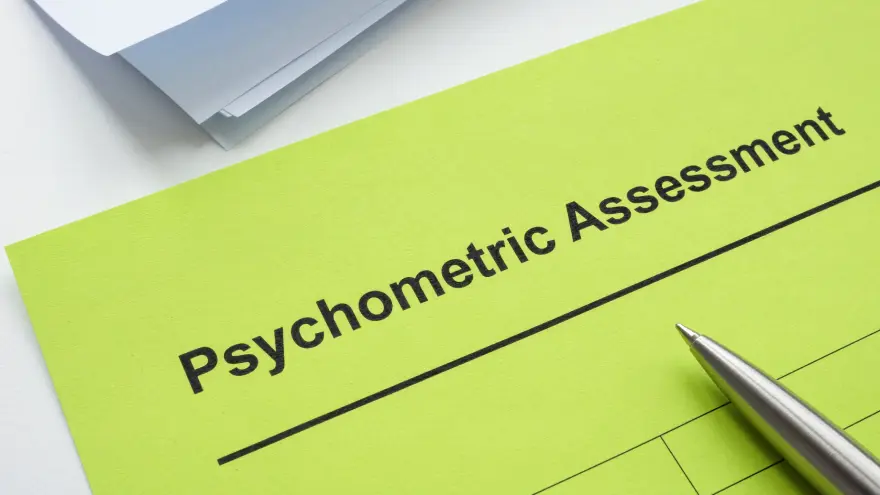In today’s fast-paced world, making informed decisions about people—whether in hiring, personal development, or educational contexts—is more crucial than ever. Psychometric assessments have emerged as a powerful tool in these areas, offering valuable insights that drive better outcomes. This article explores the power of psychometric assessments, their benefits, and how they can be effectively utilized to unlock potential.
What Are Psychometric Assessments?
Psychometric assessments are scientific tools designed to measure psychological attributes such as cognitive abilities, personality traits, and emotional functioning. These assessments are grounded in psychological theory and are often used in various settings, including recruitment, personal development, and educational placement. The primary types of psychometric assessments include:
- Cognitive Ability Tests: Measure intellectual capabilities such as problem-solving skills, reasoning, and memory.
- Personality Assessments: Evaluate personality traits and behavioral tendencies to understand how individuals interact with others and approach tasks.
- Emotional Intelligence Tests: Assess the ability to recognize, understand, and manage emotions effectively.
- Aptitude Tests: Gauge specific skills or potential in areas like numerical reasoning, verbal reasoning, and spatial awareness.
Benefits of Psychometric Assessments

1. Enhanced Recruitment and Selection
One of the most significant applications of psychometric assessments is in the recruitment and selection process. By providing objective data on candidates’ abilities and personality traits, these assessments help employers:
- Identify the Right Fit: Match candidates’ strengths and weaknesses with job requirements, reducing the risk of hiring mismatches.
- Improve Decision-Making: Combine psychometric data with other recruitment information, such as resumes and interviews, to make more informed hiring decisions.
- Reduce Bias: Ensure a fair and unbiased selection process by relying on standardized, objective measures.
2. Personal and Professional Development
Psychometric assessments are also invaluable tools for personal and professional growth. They can help individuals:
- Understand Strengths and Weaknesses: Gain insights into their cognitive abilities, personality traits, and emotional competencies, guiding their development efforts.
- Set Realistic Goals: Establish achievable career or personal goals based on a clearer understanding of their capabilities and areas for improvement.
- Enhance Self-Awareness: Improve self-awareness and interpersonal skills, leading to better relationships and job performance.
3. Educational Guidance
In the educational sphere, psychometric assessments play a crucial role in:
- Career Counseling: Help students identify their aptitudes and interests, guiding them towards suitable career paths.
- Academic Placement: Assist in placing students in appropriate educational programs or specializations based on their cognitive and emotional profiles.
- Learning Style Identification: Determine students’ preferred learning styles, enabling tailored educational approaches that enhance learning outcomes.
Key Considerations for Effective Use

To maximize the benefits of psychometric assessments, several key considerations should be kept in mind:
1. Choose Reliable and Valid Assessments
Not all psychometric assessments are created equal. It’s essential to select tools that are scientifically validated and reliable to ensure accurate and meaningful results. Look for assessments with strong psychometric properties, including validity, reliability, and normative data.
2. Integrate with Other Data Sources
Psychometric assessments should be used in conjunction with other data sources, such as interviews, reference checks, and performance records. This comprehensive approach provides a more holistic view of individuals and enhances decision-making processes.
3. Ensure Ethical Use
Respect confidentiality and ethical considerations when administering psychometric assessments. Ensure that results are used responsibly and only for their intended purposes, such as improving personal development or making fair recruitment decisions.
4. Provide Feedback and Support
When using psychometric assessments for personal development or career guidance, it’s crucial to provide feedback and support. Help individuals understand their results and offer guidance on how to leverage their strengths and address areas for improvement.
Conclusion
The power of psychometric assessments lies in their ability to provide data-driven insights into cognitive abilities, personality traits, and emotional competencies. By leveraging these assessments, organizations and individuals can make more informed decisions, enhance recruitment processes, foster personal and professional development, and guide educational choices. However, to fully harness their potential, it is essential to use reliable and valid tools, integrate them with other data sources, and ensure ethical practices.
As the landscape of decision-making continues to evolve, psychometric assessments will remain a cornerstone in unlocking potential and achieving success across various domains. Embrace the power of psychometric assessments to gain valuable insights and drive better outcomes in your personal and professional endeavors.


